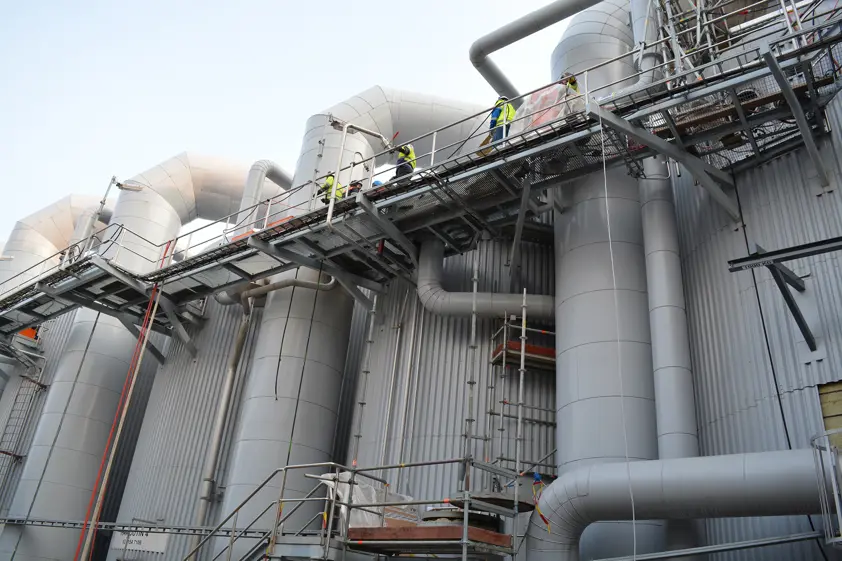UPM Kymi mill is preparing for a maintenance shutdown
The UPM Kymi pulp mill has been preparing for the currently ongoing maintenance shutdown ever since the previous shutdown ended in October 2017. The planning for the stoppage starts as soon as the previous shutdown ends. After each shutdown, all feedback, work lists and inspection results are taken into consideration – it is a continuous process.
During the shutdown, all mill operations will be run down to ensure that maintenance work, safety checks and machinery inspections can be performed safely.
The maintenance shutdown employs a large number of external contractors working side by side with the mill's own employees. During the shutdown, the number of employees is five times the number during a normal workday at the mill. The exceptional amount of people working within the mill area puts a load on safety measures and general arrangements; licenses, safety introductions, work permits, and staff facilities need to accommodate the increased demand.
Planning makes perfect
When timing for a shutdown, one must take into account, for example, the need for maintenance work and safety checks, possible new investments, renewals of machinery and also the market situation. Altogether the stoppage lasts for 12 days, a lengthy and significant interruption in a production facility as big as the UPM Kymi mill. Therefore, according to Janne Rantanen, maintenance manager at UPM Kymi mill, careful planning is of utmost importance.
"In an average pulp mill there's a maintenance shutdown more or less every 1,5 years", Rantanen explains. "We have even had shutdowns during 18 to 26-month intervals."
During the shutdown, all machinery is stopped, followed by the cleaning of all production apparatuses, the removal of all stains and residual material that have gathered during the production period. After cleaning, all equipment and safety systems will be inspected, and regular maintenance and part replacements are done.
Safety takes priority
"The most critical works, schedule-wise, will be done in two 12-hour shifts, meaning 24/7 working hours. In addition to our employees and contractors, employees from other UPM facilities in Finland will join us to assist in maintenance work and safety support," explains Rantanen.
The tight schedule and the great number of employees undertaking their tasks create specific requirements for work safety. In addition to regular safety introductions, a safety course is conducted prior to the shutdown that is mandatory for everyone working in the mill no matter where the employee is coming from.
"UPM's regular safety introductions are completed as web courses. However, the shutdown safety course is offered as face-to-face education. Everyone must take the course, and after passing it, a sticker must be placed on the work helmet to show that the employee has gone through the appropriate safety training," says Rantanen as he describes the safety measures.
The maintenance shutdowns are crucial to the safety of the pulp mill as a working environment. When the production process runs properly, and all maintenance and inspections are carried out in time, the overall safety increases and risks decrease.
Always prepared
"However, we do not take any risks between the shutdowns either," emphasises Rantanen. "If any risk factors or other abnormalities are detected, we will react immediately."
When it comes to safety in their pulp mills, UPM takes no chances. All employees, including external contractors, must pass both the mill's own and general safety introduction courses. Before starting any work procedure, a thorough risk evaluation must be made and approved by the mill supervisors.
Work permits are also a crucial part of safety measures. Not only do all contractors need work permits, but UPM’s own employees are also required to obtain permits to undertake potentially risky work duties such as working at an unusual altitude, in a closed environment or with hazardous chemicals. On top of that, adequate work gear such as protection clothing, helmets, hear protection, safety goggles and shoes must be worn at all times within the mill grounds.
"At the UPM Kymi mill, we are currently on a streak of over 2,000 days without accidents or other hazards to our own employees," says Rantanen proudly. “Our basic principle is that every accident can be prevented."
Text: Miia Kirsi

